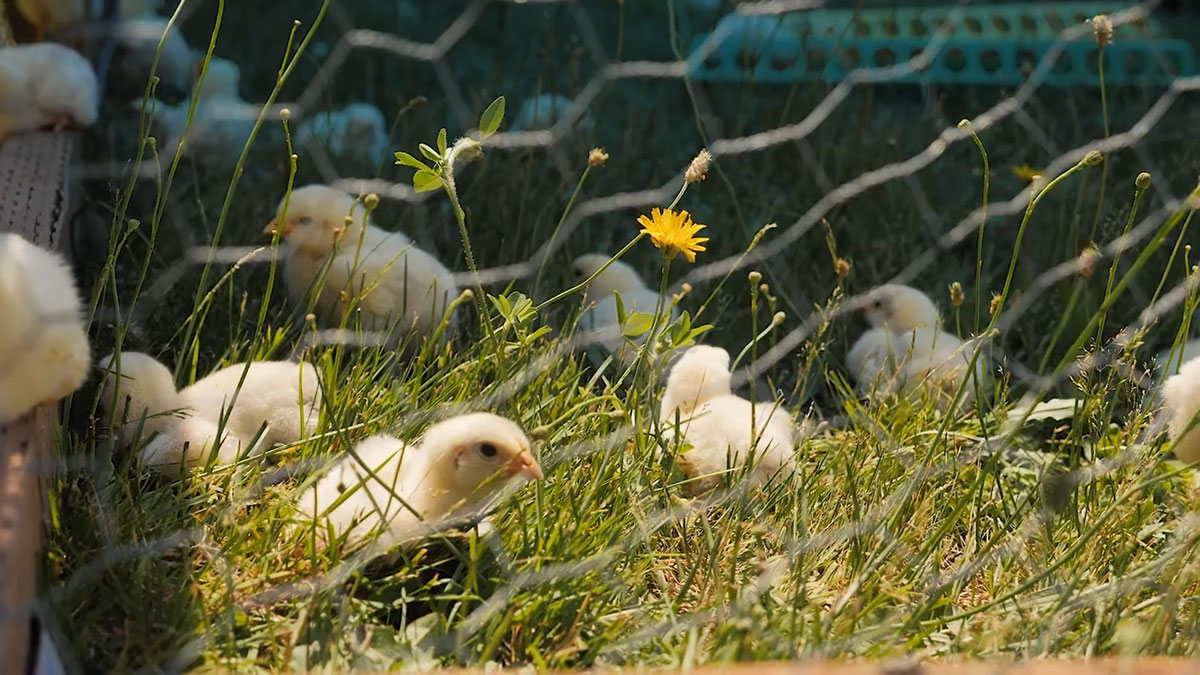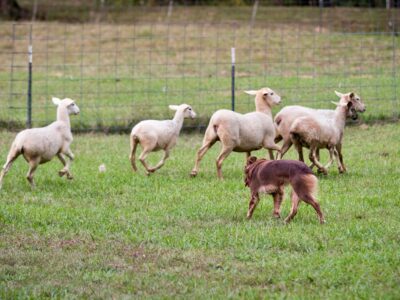If you’re looking to raise meat chickens, the next natural step is to consider breeding chickens for a sustainable flock. Learn what it takes to successfully breed chickens, as well as tips and tricks if you’re considering this option.
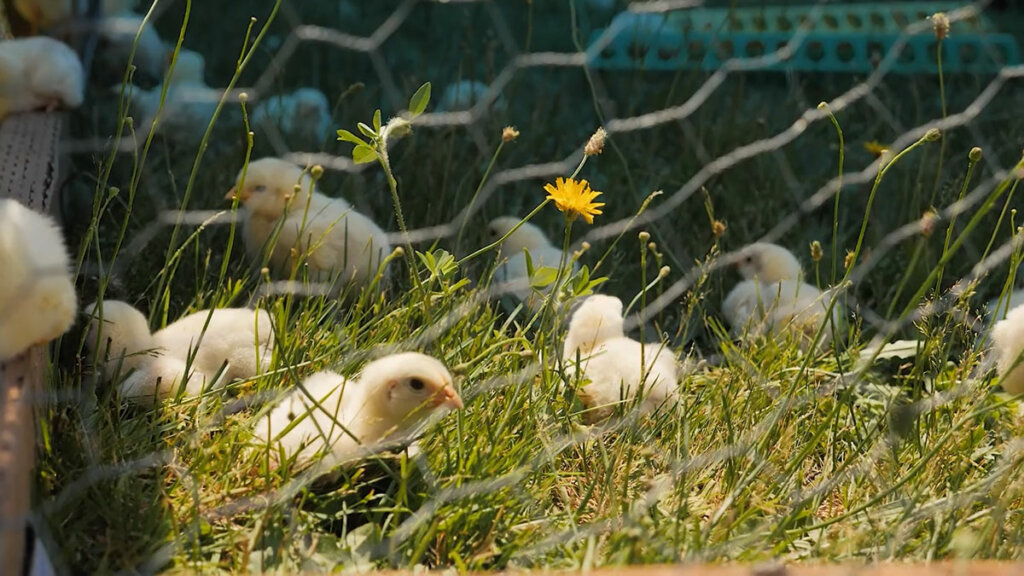
I talk extensively and have even written blog posts on how to raise backyard meat chickens and how to raise backyard egg laying chickens. However, I get asked all the time how to breed meat chickens and I never knew how to answer because I have never done this.
Natural Remedies Made Simple

Start your home apothecary with confidence—even if you’re brand new. Learn how to choose the right herbs for your body using the simple principles of herbal energetics.
Discover how warming, cooling, drying, and moistening herbs affect your body—so you can stop guessing and start making remedies that actually work.
That’s why I’m so excited that Tom McMurray of Murray McMurray Hatchery is on the podcast today sharing all of his wisdom when it comes to breeding meat chickens.
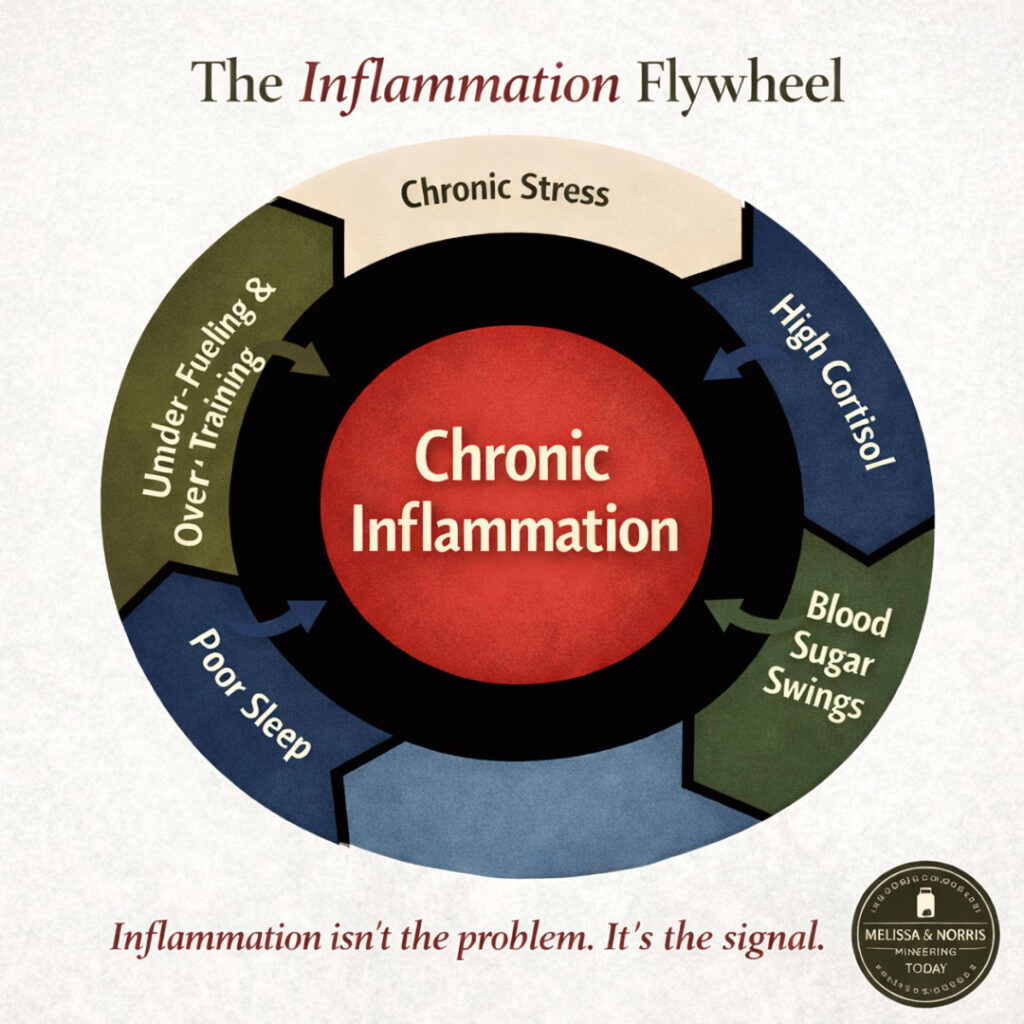
The Hidden Cycle Keeping You Inflamed
If you’ve been feeling puffy, tired, achy, or wired-but-tired, this two-page guide will help you understand what may be happening behind the scenes — even if you’re eating “healthy.”
Download the Inflammation Flywheel Guide and learn:
- Where to start so you don’t feel overwhelmed
- The 5 most common drivers that keep inflammation switched on
- Why blood sugar swings, stress, and poor sleep feed each other
This is episode #347 of the Pioneering Today Podcast. If you want to hear more of my podcasts, search “Pioneering Today” on any of your favorite podcast apps!

Murray McMurray Hatchery
I’m happy to say that Murray McMurray Hatchery is actually a sponsor of this post (and podcast), but I can honestly say that all opinions are mine!
Over the years I have bought both meat chicks and egg-laying chicks from different hatcheries. I have had horrible experiences of loss (at over 50% multiple times), but once I started getting chicks from Murray McMurray Hatchery I had fewer incidences of loss, the chicks were healthier and much more vibrant.
I’ve even noticed my egg-laying hens that came from Murray McMurray Hatchery lay much longer than the average hen (learn more about raising backyard egg-laying chickens here).
When it comes to backyard meat chickens, and if you’ve read my post on 10 tips for raising meat chickens, you all know how much I love my Cornish Cross. So naturally, I want to know if it’s possible to make my flock sustainable and breed them year after year to have an endless supply of meat chickens for my homestead.
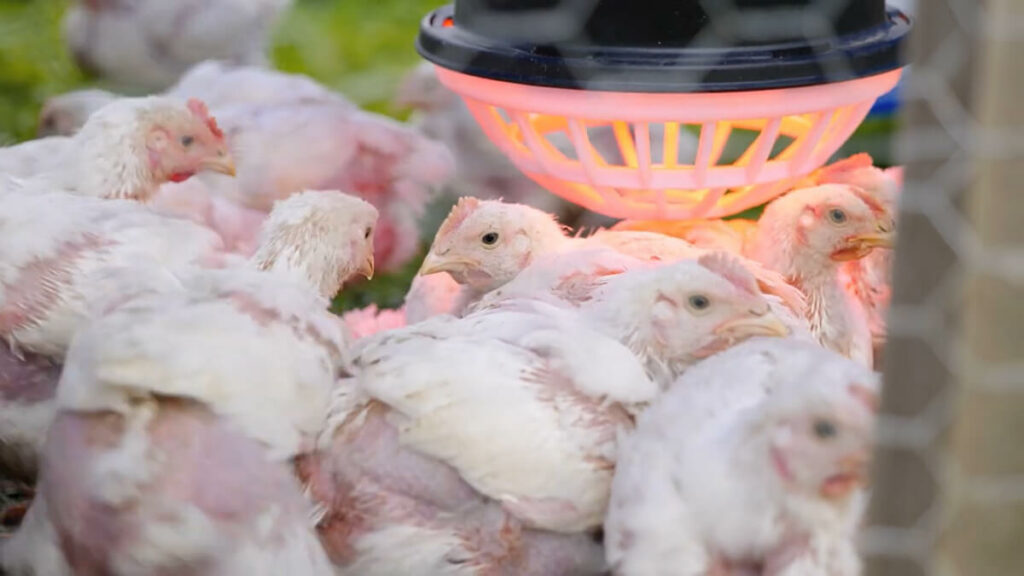
Can You Breed a Cornish Cross
Because of the features that make the Cornish Cross such a fabulous backyard meat chicken, this actually makes it impossible to breed them at home.
With the selected genetics of these birds (not GMO, just a natural selection from generations of birds) their reproduction capabilities have been eliminated.
That’s why they’re true meat chickens and no longer dual-purpose birds because they’ve been selectively bred to no longer lay eggs.
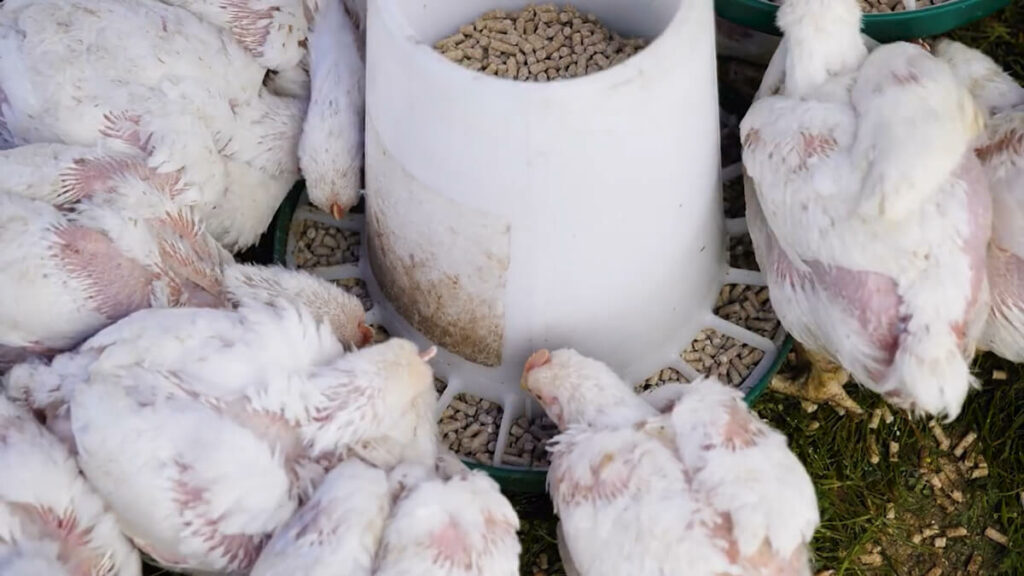
Common Misconceptions of Meat Chickens
There are many people looking to start raising their own meat chickens, and to most, a dual-purpose bird seems ideal because you can get both eggs from them as well as butcher them for meat later on (say once they’re done laying).
But what needs to be cleared up is that when raising dual-purpose breeds you will not get the same amount of meat off a bird in 8 weeks as you would a Cornish Cross, the breast size won’t be as large, and even the quality and tenderness of the meat will differ because you’ll be raising those chickens much longer (8 weeks vs. 2-3 years).
When you buy strictly meat chickens, one of the things you’re giving up is that those chickens won’t lay eggs because they’ve been naturally selected to no longer have that capability.
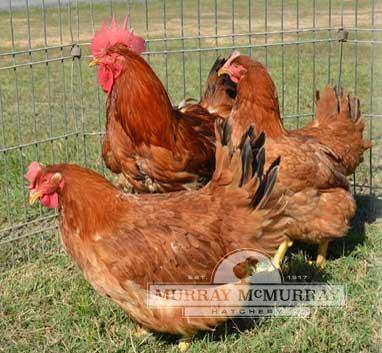
Heritage Meat Birds
This is where a heritage dual-purpose breed comes in. If you’re truly wanting to breed chickens, you will have to look for a dual-purpose breed. The caveat here is that you might need to change your expectations of what the meat will look and taste like.
Tom explains Cornish Cross birds as all-white-meat birds with very tender meat. They’ve been bred to no longer lay eggs, “fatten up” in a short 8 weeks, and have a very tender meat consistency.
You won’t get the good muscle meats (dark meat) as you would from other breeds, such as Murray’s Big Red Broiler, but those breeds also won’t have as much breast meat. They’re taller with longer legs, so you will get more dark meat.
It’s important to know what you want in your meat birds. Do you like more white meat, or would you prefer more dark meat?
After discussing this with Tom, my husband loves dark meat, so I think we’ll be trying a few different options next year to really see what varieties we prefer flavor-wise.
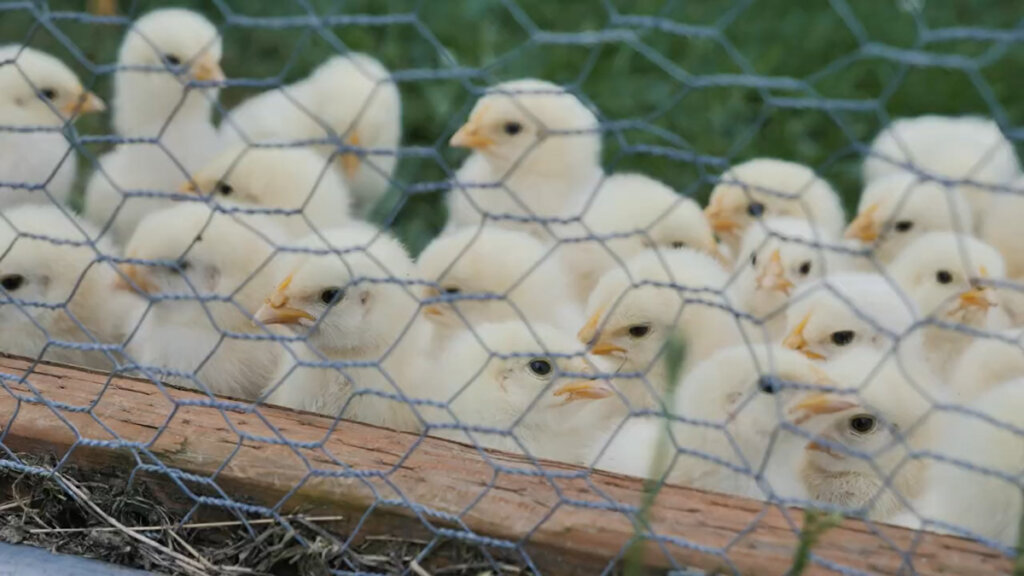
How to Start Breeding Chickens
Before you can begin breeding chickens you need to first start with chickens that are able to reproduce. This automatically eliminates the meat chicken varieties.
You would need to keep a line going for your birds to keep them from getting too much inbreeding. In order to do this, you would keep three separate pens each with ten hens. We’ll call them line “A”.
Then you would have one or two roosters (Tom recommends two, just in case one “falls over”) that will be your breeding rooster for line “A”.
From the eggs that hatch out of line “A” you’d keep all the hens for line “B”. You’d also keep two roosters from line “A” and those roosters would breed line “B”.
This pattern will continue and Tom says you could theoretically get 50 years of meat birds until those lines would get too inbred and need to be started over.
If, however, you can keep five pens of 10 chickens, then you could keep the line going indefinitely.
As you can see this would take quite a lot of space, time, and money for feed costs. When we look at all the facts and consider our space and time, sometimes it becomes clear that it’s better to buy chicks each year from a trusted hatchery like Murray McMurray.
If that is the route you choose, you’ll want to know how to raise baby chicks purchased from a hatchery, feed store, or through the mail.

Avian Flu
If you’re wanting to raise meat chickens, Avian Flu is something every homesteader should be aware of. McMurray Hatcheries were hugely affected by this back in 2015 when Avian Flu came to one of their farms.
They had to cull 15,000 of their breeder hens (the entire farm) and that was very difficult for them on a personal relationship level with those birds.
Avian Flu is carried by waterfowl. It can live almost indefinitely in cold wet or frozen ground. As birds fly overhead they drop their manure and this is how it’s spread.
It’s required of farms with outbreaks of Avian Flu to put down all birds on their farm.
Best Tips to Protect Against Avian Flu
Because the Avian Flu is transmitted so easily, it’s important to take proper precautions to protect your own flock.
None of us will be able to prevent a flock of geese flying overhead and dropping their manure on our property, but we can prevent viruses from spreading from farm to farm with a few simple steps:
- Have a “farm pair” of shoes and a “town pair” of shoes (anything for another pair of shoes, am I right ladies?). If another farm is dealing with an Avian Flu outbreak (or perhaps they don’t even know it’s there) and that farmer has been walking through the coop, they can transmit that virus all over town if they’re wearing the same boots. So to protect others and yourself, don’t wear your work boots to town!
- Wear boots that can be washed/sterilized. When wearing boots out to your own coop or around your flock, make sure they’re able to be hosed down and sterilized from time to time.
- Tom mentioned farms that had Avian Flu being checked by inspectors, and those inspectors would go to neighboring farms to check and see if any of their flock had the virus, only to be spreading that virus to those farms on their boots! So know your rights and make sure those inspectors sterilize their boots first!
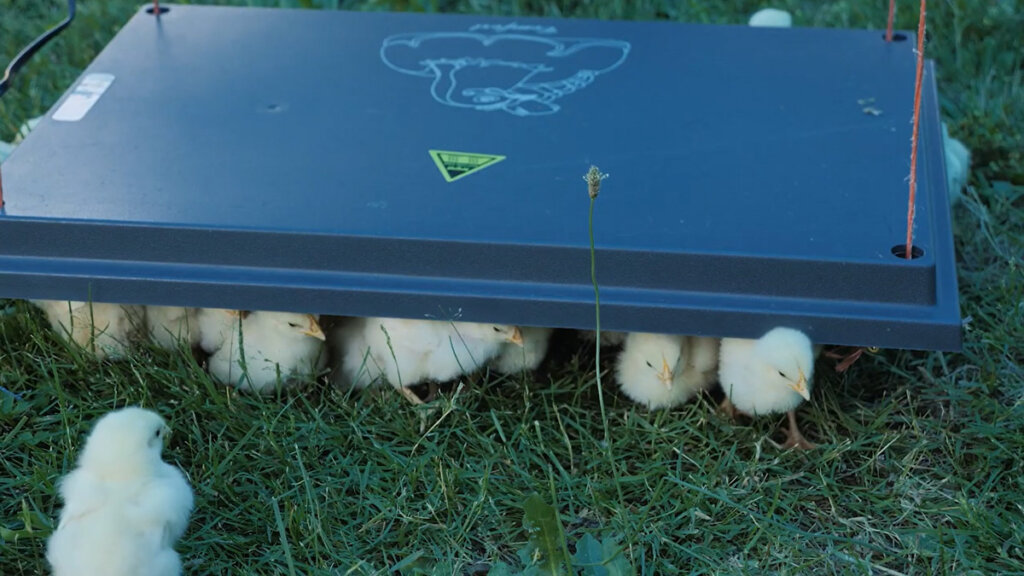
Best Time to Purchase Meat Chicks
If you’re wanting to start raising meat chickens, the best thing to do is to pre-order your chicks.
Murray McMurray Hatchery only wants to raise what they know they’ll sell, so by pre-ordering in November, you’ll be guaranteed your chicks along with breed choice and delivery date.
If you wait until Easter to order chicks, then you’ll likely miss out for that year.
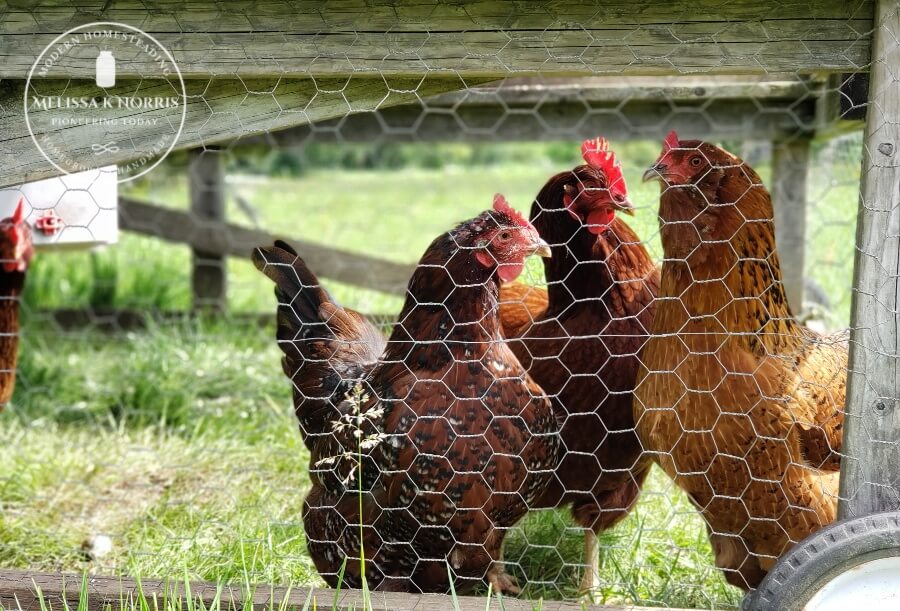
More Posts You May Enjoy
- Raising Backyard Meat Chickens
- Troubleshooting Chicken Health & Best Herbs for Chickens
- Raising Chickens for Profit
- How to Can Chicken (SAFE & Easy Raw Pack Method)
- How to Butcher a Chicken at Home
- Integrating New Chicks to Existing Flocks
- Breeding Chickens Naturally: Selective Breeding for Eggs & Chicks
- Using Chickens in the Garden (13 Things You Need to Know!)
[fusebox_transcript]
